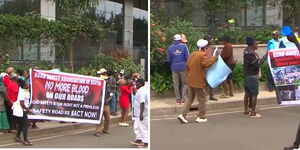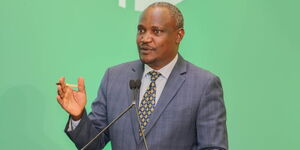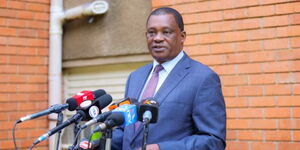For most prisoners, life behind bars is mostly spent acquiring and doing several manual jobs but for one Aloise Onyango Odhiambo, he has decided to take a different path.
Mr Odhiambo, a trained paralegal and inmate at Kamiti Maximum Security Prison, is currently serving a life sentence for robbery with violence contrary to Section 296(2) of the Penal Code.
However, he now deals with and litigates on matters of public interest as well as violations of fundamental freedoms and rights of fellow inmates.
He started testing his legal prowess on May 16, 2006, when he lodged an appeal in the High Court challenging both his conviction and sentence but were dismissed for lacking merit.
In a separate litigation dated March 2016, Mr Odhiambo sought orders to compel the department of immigration to issue all Kenyan citizens currently in detention as lawful prisoners with registration and identification documents.
He also requested to have Principal Registrar of Persons and the Immigration to open registration offices or centres in all the 106 prisons in Kenya as reported by Nation.
He further wanted to have the Attorney General advise the concerned agencies on how to issue inmates with identification cards. However, the judge termed the petition as not tenable or reasonable in the circumstances.
On Monday, Mr Odhiambo filed a petition at the High Court challenging the constitutionality of nine prisoners detained "at the President's pleasure", claiming it was unlawful. The nine are currently serving time in prison for unspecified periods.
Mr Odhiambo, last year, managed to secure the freedom of six prisoners who had been detained for 13 years under the same law.
According to the law, people guilty of offences they committed as minors and those with mental illnesses are not given definite prison terms. They are detained in prison and await to be released “at the pleasure of the President.”
In acquitting people detained under this provision who had served considerable time behind bars, High Court judges have reasoned that people with mental illnesses should be in hospital, not jail, and that allowing the President to determine their sentences goes against the principle of separation of powers.
Referring to the Criminal Procedure Code (CPC) and the Penal Code (PC), judges have also noted that the law protects children against prolonged imprisonment, so they cannot be jailed for undetermined periods for offences they committed as children.












